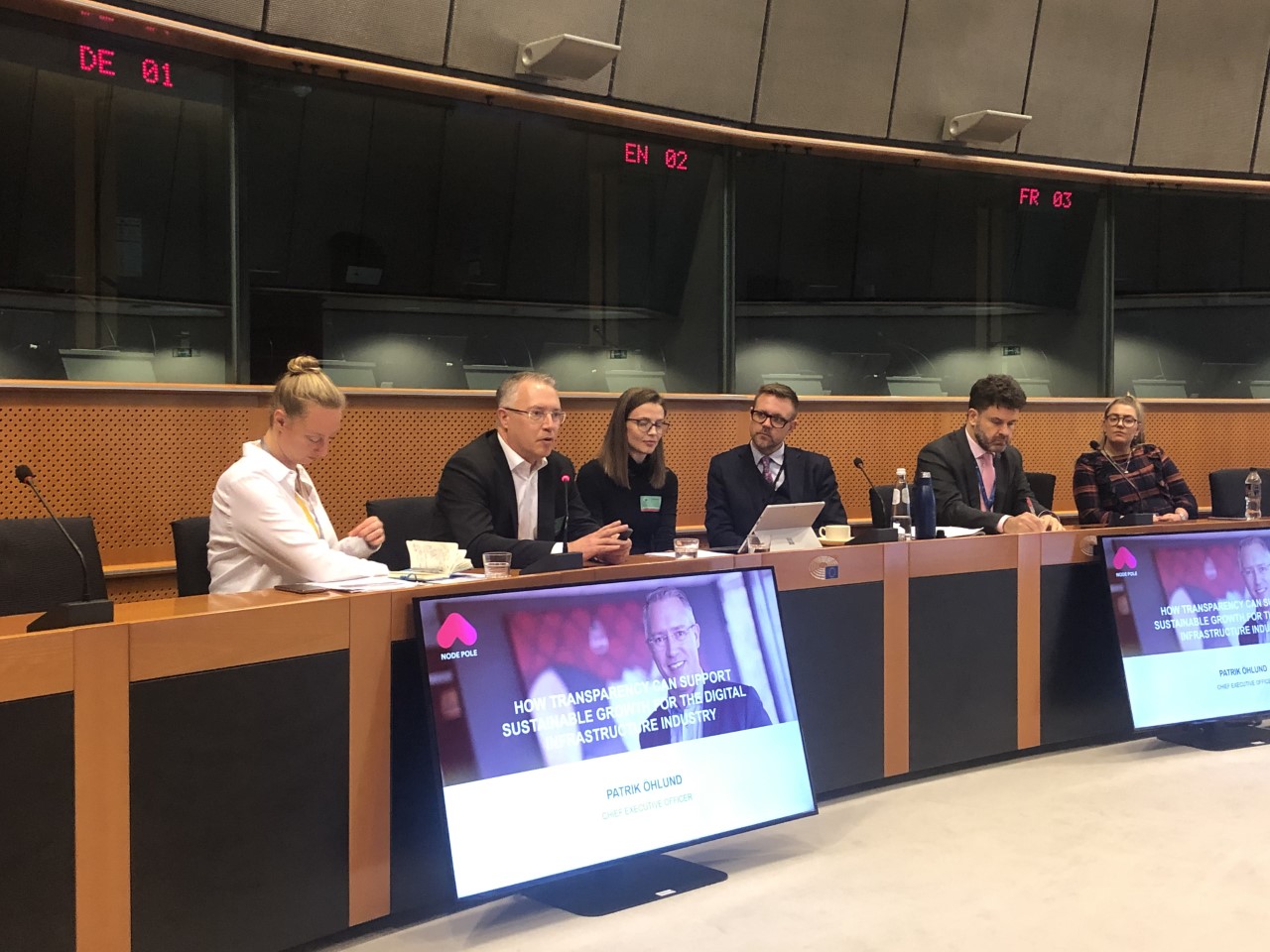Energy efficient datacenters discussed in the European parliament
On February 5th, an event was held in the European parliament that highlighted the climate effects from data centers as a growing problem in being able to reach the EU's goal on being a climate neutral continent by 2050. During the event it was stated that northern Sweden is a part of the solution, with good prerequisites to house datacenters through the access to green electricity also with the arctic climate for cooling but mainly through the leading role of the region within the technical development in energy effective datacenters.

Patrik Öhlund from Node Pole with others
The event was organized with the European parliamentarian Fredrick Federley as a host and with speakers from the EU-commission, Microsoft, Vattenfall and Node Pole. From Node Pole (Skellefteå Kraft and Vattenfalls common start-up friendly company) CEO Patrik Öhlund participated and presented the ambitions to make things easier within the transition for companies and consumers with increased transparency. With the introduction of the branding Fossil Free Data the goal is to make it easier for companies to respond to consumers want for sustainable data services and communicating climate effect of different options.
The seminar was organized as a follow up to last years committee trip were a delegation of European parliamentarians from the committee of industry, research, and energy (ITRE) visited Luleå. During the visit they learned amongst other things, about northern Sweden’s approach to sustainable datacenters.
All activities on the internet have a climate effect somewhere in the world through data storage in data centers. With a more and more connected work there is a risk that IT-infrastructure will become a greater part of the collected negative climate effects of the world. Estimates show that as much as 2% of the energy production of the world is consumed by information and communication technology (ICT).
The need for datacenters and other IT- infrastructure rises with the growing access to the internet and digitalization is heavily presented as a part of the global challenges with supercomputers, artificial intelligence, 5G and edge. All their solutions will come with the price tag of increases data storage capacities which in turn will need more datacenters. The event focuses on these climate effects needing to be diminished to that the ICT solutions do not become part of a larger problem.
The geographical placement and electrical supply of the datacenters have a great impact on the data handling climate effects as well as the data center construction and energy use. Norther Sweden is a part of the solution based on both of there problems with the regions production of renewable waterpower and the cold climate that lowers the energy use of cooling the facility. On top of that the regions actors within FoI leading in technology development for energy effectivization and optimization of sustainable energy solutions.
During the event Microsoft presented via Olga Nowicka, EU Policy Officer, the companies ambitions with climate effects, with the goal to compensate their entire climate effects from time of the start of the company. Part of the strategy is to make the planned datacenter in Gävle to the most sustainable within the company. They have also stated an investment fund of a billion euro that will support this development.
From the EU-commission DG Connect Manuel Mateo, Deputy Head of Unit, how the EU is monitoring the challenge of sustainable digitalization of European society and industry. With the new collegium of commissioners that were instated in December of 2019 a list of initiatives within digitalization and artificial intelligence were started. These initiatives will in different ways run and influence the handling of data in Europe. Not to mention, how the Green Deal will contribute to raising the question of sustainability and data.
/Niklas Johansson
Read more on the Node Pole initiative Fossil Free Data
Read more on the European Parliaments visit to Luleå in February 2019
